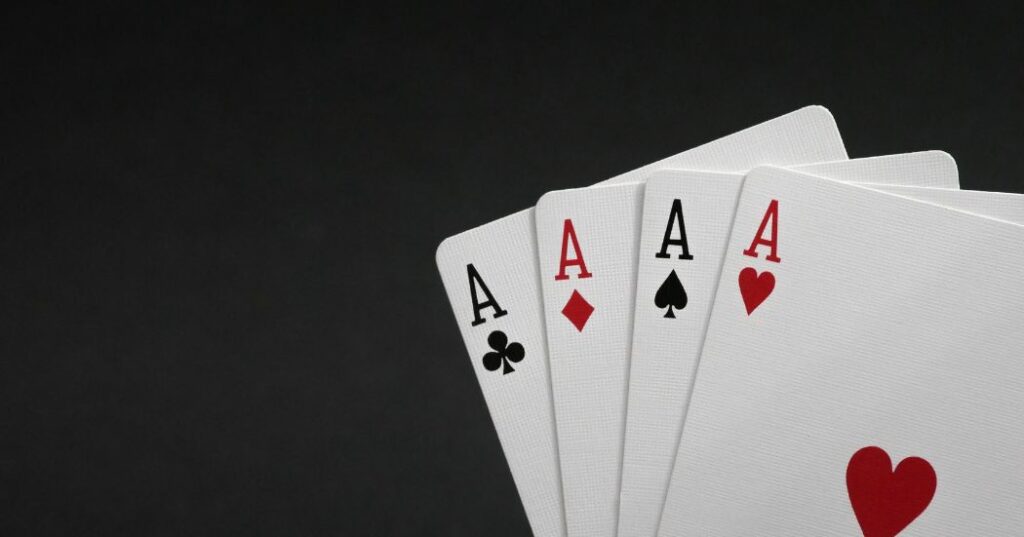In the world of competitive gaming, poker stands out as a unique blend of skill, strategy, and psychology. It’s not just a game of chance; it’s a mental battlefield where players must outwit their opponents while managing their own emotions and decisions. As you probe deeper into the intricacies of poker, you’ll discover that it’s more than just a pastime—it’s a tool for sharpening your cognitive abilities and enhancing your strategic thinking. Whether you’re a seasoned player or a curious newcomer, understanding the mental and strategic elements of poker can elevate your game and provide valuable insights that extend beyond the poker table.
The Mental Edge: How Poker Sharpens Your Cognitive Skills
Poker is a game that demands a high level of mental acuity. Players must constantly analyze their opponents, assess probabilities, and make decisions under pressure. This constant mental exercise helps to sharpen cognitive skills such as critical thinking, problem-solving, and decision-making. By engaging in poker, players learn to process information quickly and accurately, which can translate into improved cognitive performance in other areas of life. The ability to think several steps ahead and anticipate potential outcomes is a skill that can be honed through regular poker play.
Moreover, poker requires players to maintain focus and concentration over extended periods. This mental endurance is crucial in high-stakes situations where a single lapse in concentration can lead to costly mistakes. By training the mind to stay focused and alert, poker players develop a mental resilience that can be beneficial in various aspects of life, from professional endeavors to personal challenges. The discipline required to remain calm and composed under pressure is a valuable asset that can be cultivated through the strategic demands of poker.
Additionally, poker is a game of psychology. Understanding the motivations and behaviors of opponents is key to gaining an advantage at the table. This aspect of poker enhances emotional intelligence, as players learn to read subtle cues and adapt their strategies accordingly. The ability to empathize with others and anticipate their actions is a skill that can be applied in numerous real-world scenarios, from negotiating business deals to navigating social interactions. By honing these psychological skills, poker players can gain a deeper understanding of human behavior and improve their interpersonal relationships.
Breaking Boundaries: Applying Poker Strategies to Sports Analysis
The strategic insights gained from poker can be applied to various fields, including sports analysis. Just as poker players analyze their opponents and make calculated decisions, sports analysts use similar techniques to evaluate teams and players. By understanding the strategies employed in poker, analysts can gain a fresh perspective on sports dynamics and enhance their analytical skills. This crossover between poker and sports analysis is exemplified by platforms like GGPoker, which offer a wealth of resources for players looking to improve their strategic thinking.

In sports analysis, the ability to assess probabilities and make informed predictions is crucial. Poker teaches players to evaluate risk and reward, a skill that is directly applicable to analyzing sports outcomes. By applying poker strategies to sports analysis, analysts can develop a more detailed understanding of the factors that influence performance and make more accurate predictions. This approach allows for a deeper exploration of the intricacies of sports, providing valuable insights for fans and professionals alike.
Furthermore, the psychological aspects of poker can enhance sports analysis by offering a deeper understanding of player behavior and motivation. Just as poker players must read their opponents, sports analysts can use similar techniques to assess the mental state and strategic intentions of athletes. This psychological insight can provide a competitive edge in predicting outcomes and understanding the dynamics of sports competitions. By breaking boundaries and applying poker strategies to sports analysis, analysts can elevate their understanding of the game and provide more comprehensive insights to their audience.
Responsible Betting: Lessons from Poker for Smarter Decisions
Poker is not just about winning; it’s about making informed decisions and managing risk. This mindset can be applied to responsible betting, where players must balance the thrill of the game with the importance of making smart choices. By adopting a strategic approach to betting, players can minimize losses and maximize their chances of success. The lessons learned from poker, such as understanding odds and managing bankrolls, can be invaluable in making responsible betting decisions.

Card games strategy emphasizes the importance of discipline and self-control, qualities that are essential for responsible betting. By setting limits and sticking to a well-defined strategy, players can avoid the pitfalls of impulsive decisions and emotional reactions. This disciplined approach ensures that betting remains an enjoyable and sustainable activity, rather than a source of stress or financial strain. By learning from the strategic insights of poker, players can make more informed and responsible betting decisions.
Poker is more than just a game; it’s a powerful tool for personal and cognitive development. By engaging in poker, players can sharpen their mental skills, enhance their strategic thinking, and gain valuable insights that extend beyond the poker table. The mental edge gained from poker can be applied to various aspects of life, from professional endeavors to personal relationships, providing a competitive advantage in a wide range of scenarios.
The strategic insights of poker can also be applied to sports analysis, offering a fresh perspective on the dynamics of sports competitions. By understanding the strategies employed in poker, analysts can enhance their analytical skills and provide more comprehensive insights to their audience. This crossover between poker and sports analysis exemplifies the versatility and applicability of poker strategies in different fields.
Ultimately, poker teaches valuable lessons about responsible decision-making and risk management. By adopting a strategic approach to betting, players can make informed choices and enjoy the thrill of the game without compromising their financial well-being. The discipline and self-control cultivated through poker can be applied to various aspects of life, ensuring that players make smarter decisions and achieve greater success. As you continue to examine the world of poker, remember that the skills and insights gained from the game can elevate your game and mind, providing a valuable foundation for personal and professional growth.

